The UK Government has reinforced its commitment to the Global Combat Air Programme (GCAP), a multinational effort aimed at developing a sixth-generation stealth fighter jet in collaboration with Japan and Italy.
Despite concerns that the Strategic Defence Review (SDR) might delay or deprioritise the programme, Defence Minister Luke Pollard has confirmed that significant progress continues.
During a recent parliamentary session, Pollard mentioned the importance of GCAP, stating:
“Let me be absolutely clear that GCAP is an important programme, as the Prime Minister has stated. That is why the Defence Secretary hosted his Japanese and Italian counterparts within weeks of taking office. Progress continues, alongside the strategic defence review, with more than 3,500 people employed on future combat air.”
He further outlined the Government’s approach to the programme in light of the ongoing SDR:
“The Defence Secretary has clear instructions from the manifesto that Britain is to be better defended with a Labour Government. That is why within two weeks of taking office, the Prime Minister had commissioned Lord Robertson to conduct the strategic defence review. The Prime Minister, the Defence Secretary, and I have all made it clear that GCAP is an important programme. Not only do we have an amazing workforce working on it, but I am pleased to tell the House that last month the UK ratified the GCAP convention, the international treaty that sets up the GCAP International Government Organisation. We will continue to make progress.”
Assurance was also previously given by Maria Eagle MP, who confirmed last month that the UK would invest over £1.3 billion in GCAP and the associated Team Tempest research and development programme during the current financial year.
Britain starts manufacturing on new fighter jet demonstrator
GCAP is a joint effort to develop a stealth fighter jet that will replace the Eurofighter Typhoon and Japan’s Mitsubishi F-2. The programme has already seen significant advancements, with work on stealth features, avionics, and weapon systems progressing. A demonstrator aircraft is expected by 2027, showcasing the next generation of air combat capabilities.
During the same session, Chris Evans MP voiced concerns about media reports suggesting the programme might face delays or even cancellation. Pollard responded by ensuring that updates on GCAP’s progress would be shared regularly and that the SDR would not be used as an excuse to slow down the project’s momentum.
He stated: “At a time when our troops and allies are operating in difficult and contested environments, we need to ensure that we invest in the kit that we need. That is what the SDR will set out: the future shape of the UK armed forces.”
Further updates on the SDR are expected in early 2025, which will outline the programme’s trajectory moving forward.


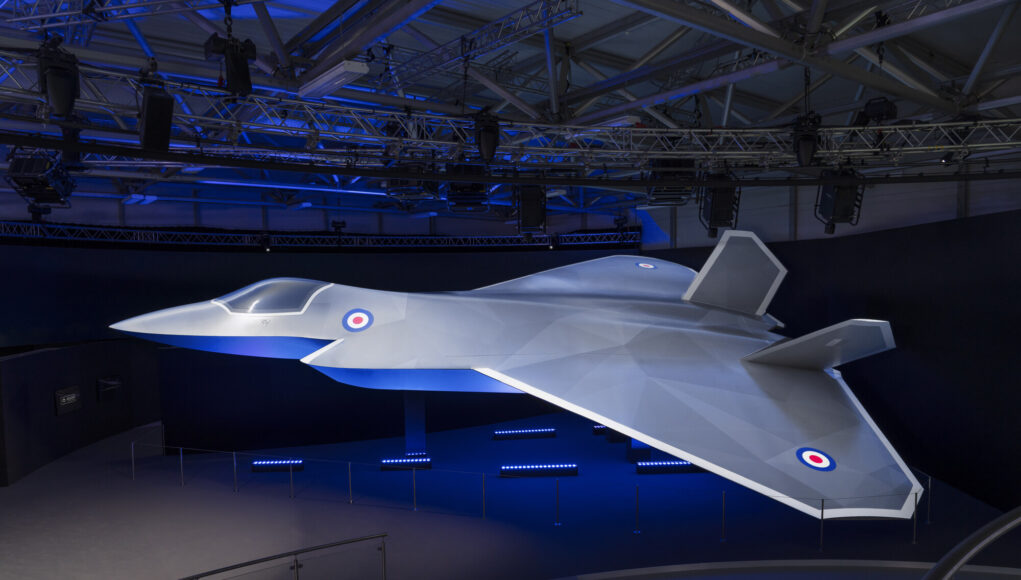
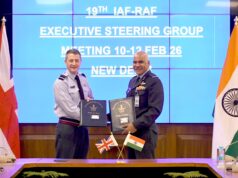
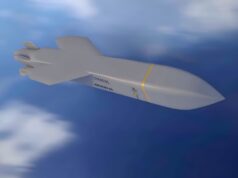

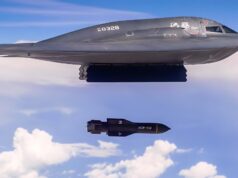
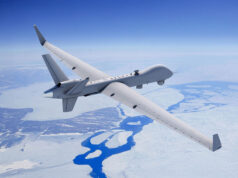



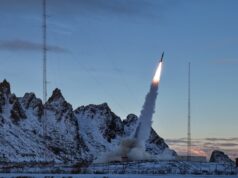


That was actually pretty clear to be honest.
Surprisingly positive. The devil will of course be in the detail but I do get impression that this is one programme that won’t be significantly impacted by the SDR due to its global nature and the UK’s geopolitical aims, especially in regards to economics.
It actually makes me hopeful on such a depressing dank day Jonathan.
This ” slow the project down” business isn’t an option anyway, if the UK took steps to downgrade or delay the program, it would be cancelled, with Japan going their own way and Italy doubling down on F35B work…
‘Significant’ annual GCAP funding will kick in next year.
Quite frankly SDSR25 will be green light go, or cancellation, there is no middle ground.
Cancellation is looking unlikely thank god!!
That’s of course assuming Japan and Italy arsnt also interested in slowing things down. I have no clue the state of japan’s public finances but certainly italy is in as bad a position as the uk.
Japan badly need the jet. It is slated to replace their version of the F16 which they have serious structural issues and are struggling to keep them airworthy. If anything the Japanese will want to speed it up.
Military need and polictical budget priority are rarely the same thing. If they were more aligned we wouldn’t constantly have capability holidays.
That’s true in the UK; however, we are a fairly long distance from Russia. Japan has been hiking its military spend year on year for the last decade, showing no signs of stopping following changes in administration. It has even changed its former pacifist law to allow for increased military capability. With close proximity to China, Russia and North Korea, the Japanese are rightly worried.
Fair. The question I don’t know the answer to is where on their priority list of new kit the program sits. But seems likely to be high up.
Nope, that’s incorrect. The F35A is replacing their F2 (F16 evolution) aircraft. The GCAP is a replacing their F15. The F2s primary role is strike and ground attack, hence the F35 as a replacement. The F15 is primarily an interceptor. The Japanese require a Low Observability, that has a very long duration/range and carry a load of AAMs. Its secondary role is strike using precision stand-off weapons. This is what GCAP will do as it matches the same UK requirement.
Don’t forget they have both China and Russia on their borders, so need an aircraft that provides a qualitative advantage over what these two countries have in service and are developing.
I stand corrected
Japan have China and North Korea on their doorstep. I can’t see them cutting this!
Let’s crack on. Hopefully better than f35 using latest tech & knowledge but cheaper to maintain. Get this is a long range big payload beast.
If the limited info is true , it will be a quantum leap ahead of any 5th gen jet flying.
Tempest is good for the security of the country. The government will change the borrowing rules to maintain investment in GCAP. It creates hi-tech jobs, generates economic growth and has export potential. Defence is one of 8 industrial sectors identified in the industrial strategy.
It is the sort of investment that is much needed.
I wonder if buying more warships is an investment – probably as they have a 25 year book life.
What we don’t need is a French style deficit.
I was laughing at the proposed HS2 Lite at 189mph rather than 250mph later dropped to 225mph.
It was always known that the cost of going from 189 -> 250 mph was roughly double as the track had to be soooo flat and sooo straight. Thing was the runs are not long enough to make it worth that running speed anyway.
189mph is TGV speed anyway.
Personally I’d have spent the same money pushing the line further towards Scotland.
“Personally I’d have spent the same money pushing the line further towards Scotland.”
That’s the same opinion as every engineer I’ve spoken to.
Unfortunately making a comprehensive system equivalent to the rest of the world’s isn’t ‘world beating’, we’ve been out of the game so long that merely catching up would be pointing out our embarrassment.
At the risk of stating the obvious we need to drop this obsession with ‘world beating’. Its not the Mona Lisa, we just need to build what is appropriate for this island geography, economy and population distribution. The mindset needs to be HS 125 and Chain Home. If you wait for perfection you will wait for ever.
Precisely.
TGV speeds are fine as London to Edinburgh is less than 400 miles and the trains have quite a few stops.
Two and a half hours in competitive with flying commercially by the time airport security and getting to/from the airports is taken into account.
Think 3.5hrs is the edge of what’s achievable for London to Edinburgh, even that would be with reduced Lumo-type stopping pattern.
Happy to take embarrassment like that if we get decent infrastructure from it.
Most lines are sub 125mph and 140mph in parts is the best they can hope for, so 186mph will be lightning fast. More than enough for the UK.
WCML north of Wigan will get upgraded Inc ETCS (as will the ECML) so 140mph running to Scotland will be possible with tilting trains at least.
I wonder if it would be possible for us to develop GCAP but not order any initial aircraft. Our typhoons only being just outfitted with new Radar and F35B being very new.
Also it seems every time we develop an aircraft we get stuck with a large number of early models that can’t be economically upgraded.
Could we give away early production slots to an export customer.
Tempest will only be up and fully operational in 2035. The Typhoon will still be a good aircraft but not in the top 12 in the World. Perhaps you want China to build them for us?
Only the first one or two F35B can’t be upgraded to the same standard as the others.
I would bet they go to Boscombe for T&E.
The thing with Tempest is that it is a relatively large platform so the big shoehorn isn’t needed. That should make upgrading a lot easier.
Was thinking more about typhoon tranche 1, the US has large numbers of F35 that can’t be upgraded to block IV. Lucky we didnt have to buy many of the early version. Could something similar be done with Japan.
I’d love that, Boscombe has been pretty boring for some time. I used to enjoy visiting there when SAOEU and FJTS were there.
Given the limited actiity there in recent years we are lucky its still operating.and much of its facilirties are very ‘ long in the tooth’ and in need of revamping – unless it has started to happen in the recentf years. .
I don’t know how much QinetiQ have invested in it, if anything, as it’s GOCO I believe.
There was an article here a few months back on the new signature chamber so hope it’s future is assured.
For me, given it’s location, the length of runway, the presence of ETPS, and that it has HAS, make it of strategic importance.
How about to Japan or Italy perhaps 🤔
The other reason that early Typhoon was a very different was that it was an aircraft that should have been in service a decade earlier so it was perfected and tweaked and perfected a bit more.
Nobody wanted to spend money in the peace dividend era on a very fast new high payload jet. Tonka was fine for any tasks anyone could come up with! Allegedly.
Head in sand time.
So low rate production eventually kicked off to keep plane building people busy.
Meanwhile, to keep design people busy, a newer version of Typhoon was developed.
There was an air of a pantomime about the whole thing. It should be a case study in how not to run something efficiently.
“There was an air of a pantomime about the whole thing. It should be a case study in how not to run something efficiently.”
Oh no it wasn’t ….
But in all seriousness if it was it would seem we didn’t learn from it…
Suggesting we don’t have confidence in our own product. Not many sales in that strategy.
Let’s build a solid product, build as many as we need and some spares same for Italy & Japan and sell on merit (if we want to).
Sounds all very nice until you run out of money and the project gets cancelled. Typhoon modernisation and F35 purchases are moving to the right so the bulk of the spending on Tempest needs to move to the right as well.
Countries like Saudia Arabia and turkey that can’t get F35 arguably have a bigger need than we do for Tempest as does Japan with a very old legacy fighter fleet.
We could easily take advantage of that.
That’s the plan. If you’ve not heard, Saudi have already stumped up some cash for FCAS research. The next step is to be either become a customer, or more likely become a lower tier partner, with a work share percentage.
We should ask why Turkey & Saudi Arabia can’t get F35 and base our export decisions on that data- not make a quick buck.
Good to hear
I think the thing about all this to bear in mind, and which makes it all so important, is that it’s not just all about a fancy 6th-gen jet. GCA is intended to be a system of systems. Dominate the air, by various and whatever means.
Strictly speaking, naval surface assets will be part of GCA, as will land forces. Anything that can detect, process, and possibly attack or defend – all linked into the one system, instantaneously.
Right now that is all just jargon with fancy pictures and nothing concrete behind it. Time will tell if it equates to anything substantive.
What about Link-16 that already provides the network to share sensor data from F-22, F-35 and others…
Integration with Patriot and other air defense is probably an operational capability so current technology.
But that already exists, it’s not a new tech changing how things being done on the battlefield
Link 16 is very old, think Nokia mobile phone old and has very little bandwidth. The data systems linking F35 and light years beyond it as is the navy’s CEC.
Link 16 can’t enable very much in terms of kill webs.
I still think it would look way cooler if the fins were canted inwards instead of outwards.
..and looking cooler is important Mike
First off it was an attempt to inject a little levity into the “ serious” discussion by all the arm chair air vice marshals on here ( i included myself in this category)
Secondly the current rendering of the aircraft are very close to the so called “ frizbee” design that it was thought the F117 looked like when it was still top secret.
Thirdly , there is a saying in aviation circles , if it looks right, it will fly right .
And lastly,
Lastly, Do I know you? It is consider to be con descending to use a person name when replying in a forum. As I obviously don’t know you, please refrain from doing it.
Mike, your name is your username. What else do you want him to call you?
Mr Hannah?
No one is trying to offend you, quit victimising yourself.
Is says who you are replying to at the top of the post. No need to repeat it.
As for victimising, I suggest you stop. Ring so dramatic!
Thanks Leh😀
My reply about cooler was also said in jest-my turn at levity..Balance of 1st paragraph ok.
Last para-I know lots of people on UKDJ even though I have never met any of them. I have not to date had a complaint such as yours and we virtually all call each other by first names/nicknames/monikers. Do we need to be formally introduced?
Kind Regards from South Africa
I am perhaps over sensitive due to dealing with nationalist trolls on two Scottish newspaper forms, where his use of a persons name is an attempt at condescension .
Your beautiful country is on my bucket list to visit one day.
Hello-I sympathise. I had a couple of years commenting on the Herald and fighting off the Nats prior to them gaining power at the Scottish Parliament so understand your frustration! All good-hope to see you here in my adopted home one day.
Cheers for now
Hello my friend. We are flooded here! 😁
Hello Daniele. Do you mean literally😵 I will contact you later. Been madhouse here! Cheers, Geoff
Geoff, or “geoff” as there is another Geoff on the forum, so he likes to differentiate, is to me the “father” of the site, and in no way is being condescending. Quite the opposite in fact. 👍
Lovely to see “proper “RAF roundels 🙂
…I would prefer the WWII-era type 😊
All good-better than the one’s you can hardly see 😉
As they’ve nicked the name Tempest, would love to see proper RAF cammo and the old fuselage codes JF-E and “Le Grand Charles” stuck on. (see Pierre Clostermann – WWII Anglo-file RAF distinguished fighter pilot and his inspirational book “The Big Show).
Thanks for that-will check it out
I remember the Germans were very cross when we chose to call our EFA ‘Typhoon’. At least we didn’t call it ‘Spitfire’!
…I’m still waiting for a new UK super long-range strategic bomber/missile/drone mother ship, and it to be called “LANCASTER (B.XI).”
That would wake a few hairy Johnnies up 😊
There are plenty of other towns that could be used, rather than regurgitating old names. It’s high time we see squadrons of Bognor Regis, or Milton Keynes bombers gracing the skies.
Quiver afore my mighty squadrons of Swanseas and Dudleys
At least it won’t be named after the village of Tw**t. Could you imagine the headlines?
Newsflash:
“The RAF’s squadron of Wookie Hole drone bombers is currently carrying out strikes against Russian positions. They are working alongside Tw**t low-level reconnaissance UAVs and are receiving fighter cover from”
I couldn’t think of a name for the fighter, any suggestions?
😆 I know of Wookie Hole, but that made me think Chewbacca was the pilot!
The Fighter….”Black Dog”
Look it up, I think it is is Somerset or thereabouts! 😂
I feel like London would make a good name for a bomber.
HMS Milton Keynes would be better.
Not Bognor!!! Please! 😳
It will be excellent progress if we can get a demonstrator in the air by 2027, shows serious intent. We are in a bit of a competition here with the Franco-German offering and whatever the USA comes up with out of its NGAD programme, would be great for our aircraft industry and exports if we can get in pole position for a change.
The big question at this stage is, what type of aircraft is envisaged? As the successor to Typhoon, it will certainly be a longer range air superiority/air defence fighter. But is the intention to also be an interdiction/strike aircraft, a sort of replacement for the tonka?
I hope not, the design requirements for an agile fighter and a strike fighter with a good weapons payload are very different, trying to do a two-in-one is always a compromise. Japan and Italy are anyway going big on F-35A purchases and that will be their SEAD/interdiction aircraft for the next 20-30 years, so the assumption must be that their main interest is in an air superity/air defence fighter.
As we scrapped tonka without replacement, we now have no interdiction capability, other than the short-range, low payload F-35Bs. I hope the MOD won’t try to turn Tempest into a jack-of-all-trades, it’s the kind of thing civilians with little understanding of aircraft design gravitate towards. As the F-35 programme has demonstrated, trying to get one aircraft design to stretch to doing several different roles has not been that successful.
Does a fighter still have to be agile?
I’d argue that with modern BVRAAMs and with heat-seekers like ASRAAM doing the turning for you, the requirements for both are quite similar.
You need long range (to get around enemy IADS /stay on patrol longer), massive weapons bays (for cruise missiles/ lots of BVRAAMS) and excellent sensors (for SEAD/detecting stealth jets).
We are forced into a platform with F35’s range to use from the Carriers. We’re too far from the conflict areas to use F35 in Europe except from dispersed airfields, but these then don’t have the range to strike far into Russia.
So the ideal solution for Tempest is essentially a stealth F15, fighting all of the way to the target, dumping precision munitions on it and fighting home again.
She’s a big girl, apparently!
The numbers suggest so.
Length roughly like the F-111
Wing area 90% of an A320
Going to be unlike any British fighter ever in that it is bigger and has more fuel than contemporaries.
Wonder how it compares to the Fiddler.
That was huge.
Just looked it up, only looked at the title pic on Wikipedia.
No way is that a fighter.
You could say the same about our own Tornado F3.
Fiddler was designed to cover the huge area along the northern coast of the USSR, the primary, shortest route for B52s in the Cold War and intercept before they could release their ALCM.
It’s about range not manoeuvreability.
I like it. Excellent NATO name, too 😉.
The ideal Tempest would be the new DH Mosquito.
Magically adaptable to any role and somehow top of the class in all of them.
Want to fire FC/ASW from 500 miles away at the Kremlin? Got you.
Want to stem the Orc hordes with Spear in the Suwalki Gap? That too.
Want to knock down the Russian air force with Meteor before they know you’re there? No problemo.
All good, as long as we get more than 50!
I don’t see any competition as the USA has all but canceled manned NGAD and would not sell it anyway and there is no functional Franco German FCAS program and may never be. They are at the technology maturation stage. Even that stage which should have been easy enough to agree was a farce and things will only get harder going forward. Neither France or Germany has any money and no one serious will work with them to get any more.
The US has not cancelled either NGAD programme yet. The USAF NGAD was ahead of GCAP when they were minded to spend over $300m per aircraft, but as you say, they wouldn’t have sold that abroad even if foreign countries could afford it. They have gone back to the drawing board and are looking for a much cheaper plane to incorporate all the new tech. The USN, despite funding issues seems to be moving along with selections for its F/A-XX programme, but the only obvious foreign candidate customer I can see for that is India. Despite having a lot of advantages to get a fast build, given their reduced requirement set, I don’t see USN being in any big hurry.
I think the USAF will revive its NGAD within the next two years, and the new design will be cheaper, lower tech, and probably to be made available to foreign countries. They will have lost their lead on Tempest/GCAP and will still be more expensive. We can’t rule them out. US companies can churn out a new prototype far faster than anyone else, so they may pass us again. We call GCAP 6th gen and the USAF call NGAD 6th gen, but that doesn’t mean the two planes will be equivalent.
The race is far from over. The first aircraft to get into production will have a significant sales advantage. The front runners are all still a decade away, with Franco-German SCAF bringing up the rear. It’s anyone’s guess which of GCAP, F/A-XX, or USAF NGAD will move into production first.
The US has not canceled NGAD. It is redesigning it in light of technologies not available when it was first designed to reduce costs. Another option under consideration is to reduce it from having two engines to one. In any event, the USAF plans to build the NGAD for about the same cost as an F-35 which is presently around $84 million.
NGAD is not the first interaction of this program it was previously called Penetrating Counter Air and rescheduled into NGAD after it was shown to be too expensive. Now NGAD is basically CCA. It’s right to say NGAD isn’t canceled as it never existed in its manned component but the speculated program to produce a manned aircraft is dead for the USAF for the time being and they will go back to the drawing board and come up with a new Acronym. So NGAD is canceled.
Whether it comes back will depend on budget and effectiveness of CCA.
Yes it sounds reasonable at the superficial level but the problem with this Government is what they don’t say, and how they reinterpret what they said before the GE and what they need to say now. The current debate on NI is just latest maifestation of this reinterpretation. On GCAP untill we have a real funded production programme for suffficient numbers its just an interesting research project. Just look how long it took for BAE to fly the EAP and how much longer it took to deliver Typhoon. As for ‘world beating’ I hope its not used as an excuse to reduce numbers, given Ukraine that sort of military logic should be dead and buried and mass is important..
I doubt that UK as anymore the institutional/organisational and political quality and clarity to build something like this.
Well said commrade 😀
Sorry, has instead of as.
Comrade? Vade Retro!
The last time something equivalent to this was done was with Typhoon , almost 30-40 years ago, most those persons are not available anymore. Tempest will be even more complex with more specialities. In meantime the society changed to be even more political, putting more resources into politics instead of rewarding creation, invention that made the industrial revolution and the competitive advantage that it come with it.
I don’t disagree, but if we don’t at least try then this country is every bit as terminally broken as its naysayers say it is
I also agree that is probably better to go for it and challenge themselves than let it even get worse.
With the amount of money people like BAE are putting into training and attracting young engineers (woohoo!) and the availability of CAD and AI design tools, I don’t think the design workforce is much of an issue.
The main problem will be building the things in large numbers without being horrendously expensive, which will hopefully be sorted by using mostly robots and having engineers manage the factory floor.
You doubt wrong! And totally ignore the fact that it IS being built, alongside all the UK components and sub assemblies for Typhoon and F-35 and Typhoon final assembly!
Very good news for all involved. “Britain is to be better defended” according to the manifesto.. This is going to be the crunch. I really hope the SDR lives up to the pledge.
Good to see the announcement. I am glad that not everything is on hold awaiting the SDR, which might be taking a full year.
Great news it must be said but what will we have to sacrifice in order to get GCAP – and how many will we get?
We all know there will be no new money either in the budget later this month or the SDR next year, so it has to be a case of ‘Rob Peter to pay Paul’.
The budget for Tempest this current financial year has been cut by 10%. Luke Pollard, the Armed Forces Minister, confirmed on 15 October: “At the start of this financial year, it was expected that the Ministry of Defence would spend up to £1.46 billion [on Tempest, this has now been] reduced to £1.3 billion”.
Industry can probably tolerate this with no serious impact on the programme if its just a once-off case of deferring some bills to April 2025, but supplier risk registers for the project will now be changing from green to amber.